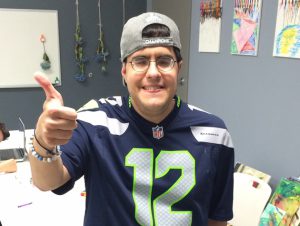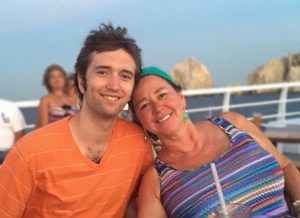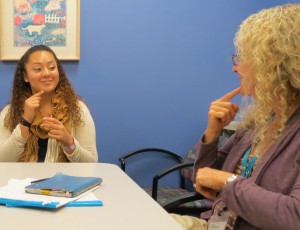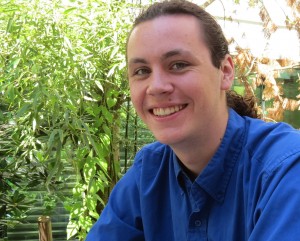Morgan Wood has been coming to Seattle Children’s since he was born — and as an adult, he continues to benefit from recreational and social skills classes at the Alyssa Burnett Adult Life Center. He is known among both friends and providers for sharing his life mantras, which he developed to work through challenges related […]
Since Eva Tomassini was 4 years old, she remembers her life being controlled by rules. Not from her parents, or school, but rules she created in her head, like having to arrange things in a certain way or run away in order to prevent terrible things from happening. As Eva grew older, her compulsions and […]
Depression is one of the most common mental health issues a teenager can face. According to the National Institute of Mental Health, an estimated 2.8 million adolescents ages 12 to 17 in the U.S. had at least one major depressive episode in 2014, or 11.4% of adolescents that age. Depression can create a huge cost […]
Children with autism spectrum disorder (ASD) are becoming a larger proportion of Seattle Children’s patients, challenging providers to develop new tactics to meet their unique needs. This year’s Pediatric Bioethics Conference, “Autism Re-examined: Ethical Challenges in Care, Support, Research and Inclusion,” will focus on the challenges and special requirements of treating these patients. Dr. Eileen […]
Laura Crooks, director of Rehabilitation Medicine, shares how losing her son, Chad, sent Laura and her husband on a mission to eliminate the stigma around mental illness. My son had mental illness. It seems so strange to write those words. Instead, I want to write that he was creative and loving and gentle. I want […]
Yajaira Bedolla was 11 months old when her parents learned she was deaf. Living in Uruapan, Mexico, Bedolla’s parents searched their town for resources to help with the unknowns of raising a deaf child. The limited resources they found focused on teaching deaf children just to speak, rather than also learn sign language. They expanded […]
The holidays can be a particularly blue time of the year for people, including children and teenagers. The darker days of winter can bring about a gloomy mood and the hype of the holidays can set unrealistic expectations for children. There are many reasons children may feel sad or anxious around the holidays, including added […]
The prevalence of autism spectrum disorders (ASD) is on the rise, but researchers are still searching for explanations as to why. A new study out today in JAMA Pediatrics , linking the use of antidepressants during pregnancy to an increased risk of autism in children, is just another brick in a path toward understanding risk factors […]
When I was 16, I spent 10 days at Seattle Children’s in the Inpatient Psychiatric Unit (now called the Psychiatry and Behavioral Medicine Unit, or PBMU). I fought it. I hated it. I couldn’t get out of there fast enough. Looking back three years later, I can tell you that those were the most important […]
Dr. Raphael Bernier, clinical director of the Autism Center and investigator in the Center for Child Health, Behavior and Development at Seattle Children’s Research Institute has continued his quest to identify genetic mutations that are linked to autism. In a new paper published in Nature Genetics, Bernier and his collaborators at the University of Washington discovered evidence that some children with autism were more […]









